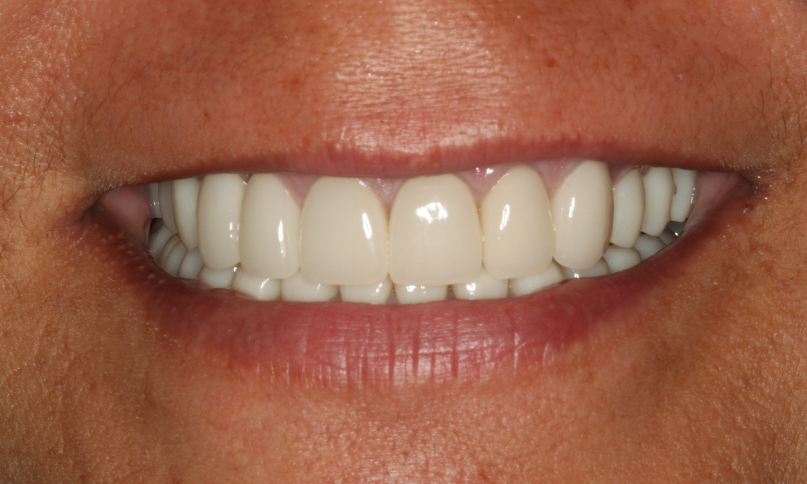
Dental Crowns for Cracked, Broken, or Discolored Teeth
Many people often consider a bright, healthy smile one of our most valuable assets. It can boost our confidence, enhance our appearance, and leave a lasting impression on those we meet. However, maintaining that perfect smile can sometimes be challenging, especially when our teeth suffer from cracks, fractures, or discoloration. In such cases, dental crowns, expertly crafted by a cosmetic dentist in Tempe AZ, emerge as the unsung heroes of restorative dentistry, rescuing our smiles and preserving our dental health.
Dental Crowns: A Lifesaver for Damaged Teeth
Dental crowns or caps are custom-made, tooth-shaped restorations designed to encase a damaged tooth entirely. Dentists fashion these crowns from various materials like porcelain, ceramic, metal alloys, or a combination of these, depending on the patient’s unique needs. Dental crowns provide an effective solution for teeth that have cracks, breaks, or discoloration.
Here’s how dental crowns come to the rescue:
1. Cracked Teeth: Cracks in teeth can be painful and, if left untreated, lead to more severe dental issues. Dental crowns provide support and protection by covering the damaged tooth, preventing further cracking or breaking.
2. Broken Teeth: A broken tooth can be uncomfortable and unattractive. Dental crowns repair and strengthen the tooth and restore its appearance, allowing you to smile confidently once again.
3. Discolored Teeth: Stubborn teeth stains that don’t respond well to whitening treatments can be frustrating. Dental crowns, particularly those made of porcelain or ceramic, offer a natural and long-lasting solution to discoloration.
When to Consider Dental Crowns
If you’re dealing with dental issues like cracks, breaks, or discoloration, it’s essential to understand when dental crowns might be the right solution. Here are some common scenarios that warrant considering dental crowns:
1. Severe Decay: Teeth with extensive decay may require crowns to restore their structural integrity and protect them from further damage.
2. Fractured Teeth: When a tooth has fractured due to trauma or wear and tear, a dental crown can effectively repair and strengthen it.
3. Cosmetic Improvements: For aesthetic concerns, such as discolored or misshapen teeth, crowns can be an excellent choice to achieve a beautiful and natural-looking smile.
4. Supporting Dental Bridges: the crowns anchor dental bridges, which replace missing teeth. The crowns are placed on adjacent teeth to hold the bridge securely.
5. Post-Root Canal: The treated tooth often becomes weaker and more prone to fracture after a root canal procedure. Typically, a dentist places a crown over the tooth to protect and strengthen it.
6. Worn Teeth: Teeth that have worn significantly due to grinding or clenching may benefit from dental crowns, which can restore their size, shape, and functionality.
The Dental Crown Process
Getting a dental crown involves several steps to ensure the perfect fit and functionality. Here’s a general overview of the process:
1. Consultation: Your dentist will evaluate your oral health, discuss your concerns, and determine if a dental crown is the right solution.
2. Tooth Preparation: If a crown is recommended, the dentist will prepare the affected tooth by removing a portion of its enamel. This allows the Crown to fit securely without altering your bite.
3. Impressions: Impressions of your teeth are taken to create a customized crown that matches your natural teeth in size, shape, and color.
4. Temporary Crown: While the permanent Crown is being crafted, a temporary crown is placed over the prepared tooth to protect it.
5. Crown Placement: Once the permanent Crown is ready, it is placed over the tooth and secured with dental cement. The dentist will make necessary adjustments to ensure a comfortable and functional fit.
6. Final Polishing: The Crown is polished to match the sheen of your natural teeth, creating a seamless and attractive addition to your smile.
Benefits of Dental Crowns
Crowns offer a wide range of benefits, making them a versatile and valuable tool in the world of dentistry:
1. Restoration of Function: Cracked or broken teeth can be restored to their full function, allowing you to eat, speak, and smile with confidence.
2. Enhanced Appearance: Crowns can improve the aesthetics of your smile, boosting your self-esteem and overall quality of life.
3. Durability: Proper care of it can last many years, making them a cost-effective and long-lasting solution.
4. Protection: Crowns provide a protective barrier for weakened or vulnerable teeth, preventing further damage.
5. Versatility: Dentists can use them in various dental applications, ranging from restorative to cosmetic.
Caring for Dental Crowns
To ensure the longevity of your dental Crown and maintain your newly restored smile, follow these essential care tips:
1. Regular Oral Hygiene: Continue to brush and floss your teeth regularly, paying extra attention to the area around the Crown.
2. Avoid Hard or Sticky Foods: Be cautious with hard or sticky foods that can put excessive pressure on the Crown and potentially cause damage.
3. Routine Dental Check-ups: Visit your dentist regularly to ensure that the Crown is in good condition and has no issues with the underlying tooth.
4. Protection During Physical Activity: If you grind your teeth or participate in contact sports, consider using a mouthguard to protect your dental Crown.
Dental crowns are the unsung heroes of restorative dentistry, rescuing our smiles from the perils of cracks, breaks, and discoloration. Dental crowns have become a cornerstone of modern dental care with their versatility, durability, and ability to blend seamlessly with natural teeth.
If you are dealing with damaged or discolored teeth, consider consulting with your dentist to explore the potential of crowns as a solution. Proper treatment can rescue, restore, and make your smile shine brightly again. Don’t let dental issues hold you back – let dental crowns be your hero in achieving and maintaining a beautiful and healthy smile.
